Who will I foster?
At Unity Foster Care, we always involve our foster carers in the decisions over who they look after. It's important for both the foster child and foster parent to be happy, so we carefully select potential families using our enhanced matching process.
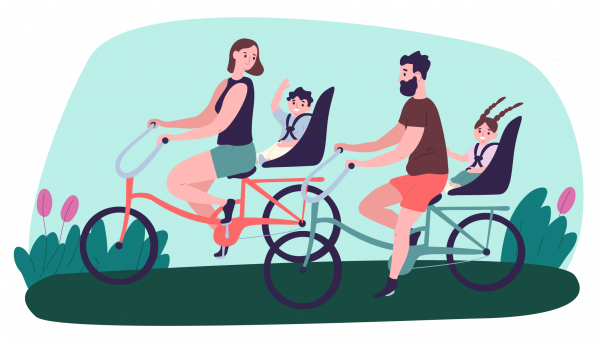
How will I be matched with a foster child?

During the fostering assessment process, you'll often hear the term 'matching process' - but what does it mean? At Unity Foster Care, we have a detailed and thorough matching process where our team looks at key factors to decide whether a foster parent will be able to provide suitable care to a child. We consider a variety of aspects such as life experiences, location, work, training and personal preference.
Wherever possible, we like the young person being fostered to be involved in the decision of who they're placed with, and have introductory visits and overnight stays before moving in. It's a great way for the foster carer and child to get to know each other, and see if they will be a good match.
Our enhanced fostering matching process allows us to find the best possible placements for both the foster child and carer, ensuring pairings will be happy and comfortable!
Who will I be caring for?
When you become a foster carer with Unity Foster Care, you will be welcoming a variety of young, wonderful people into your life! We split our 'placement types' into the following categories:
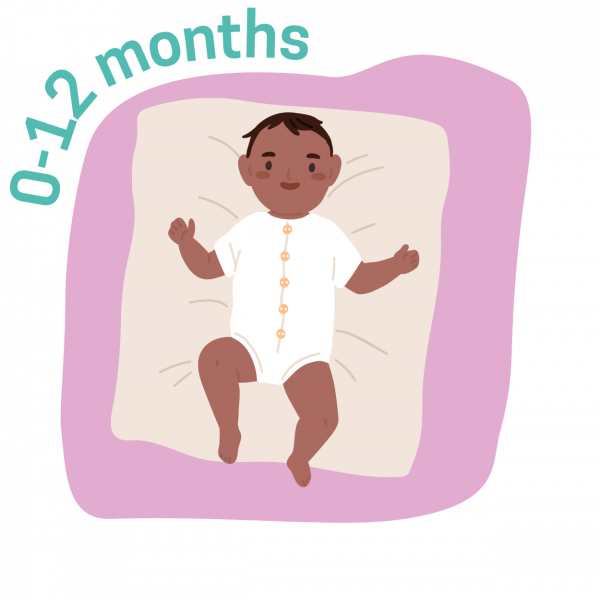
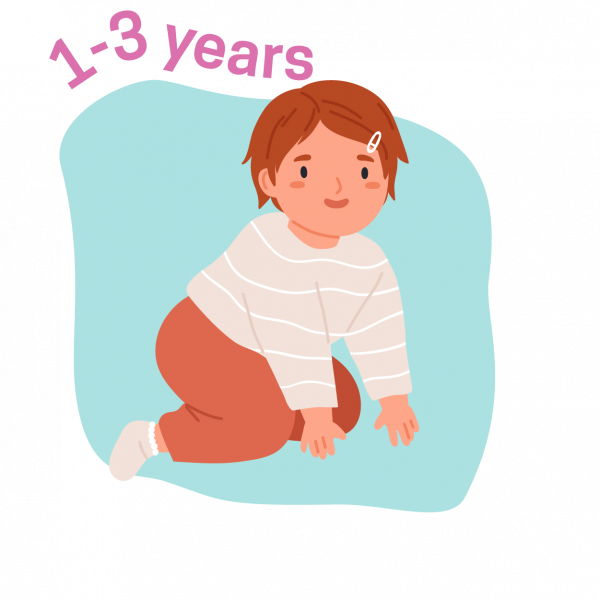
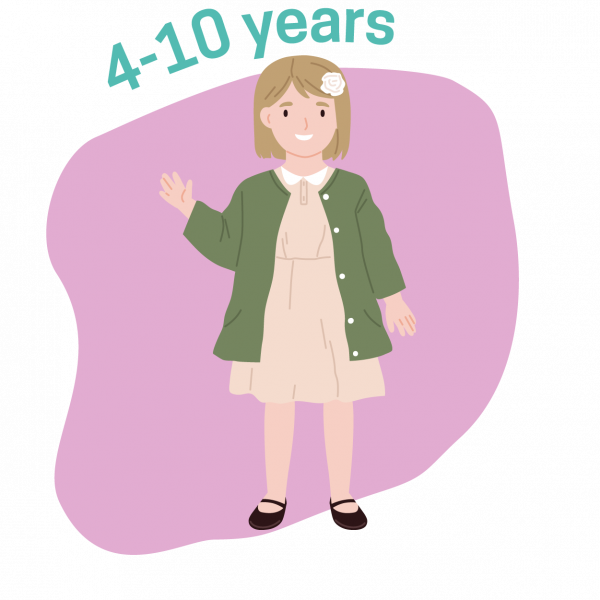
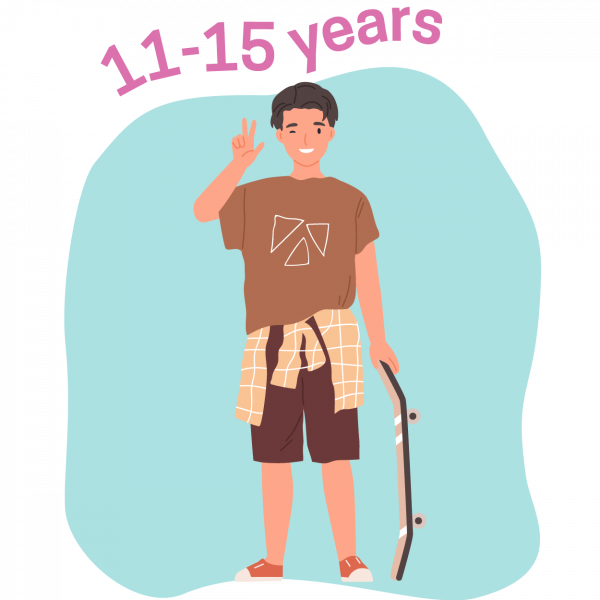
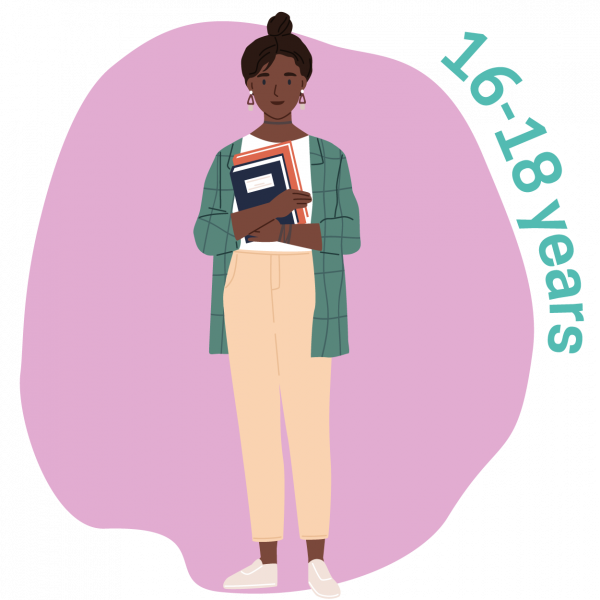
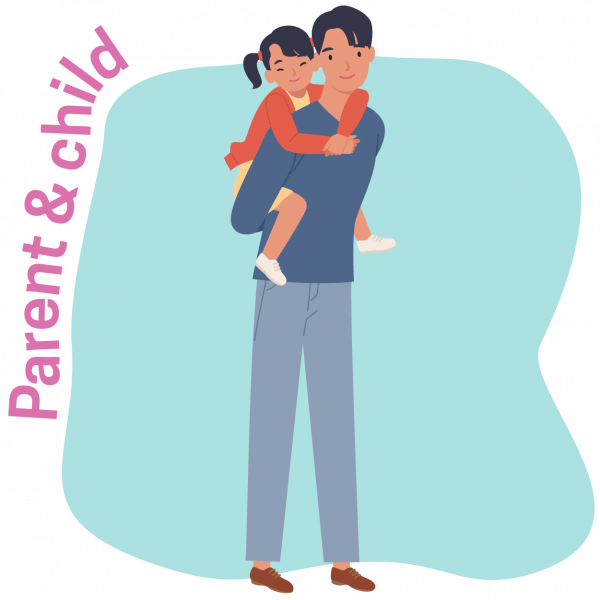
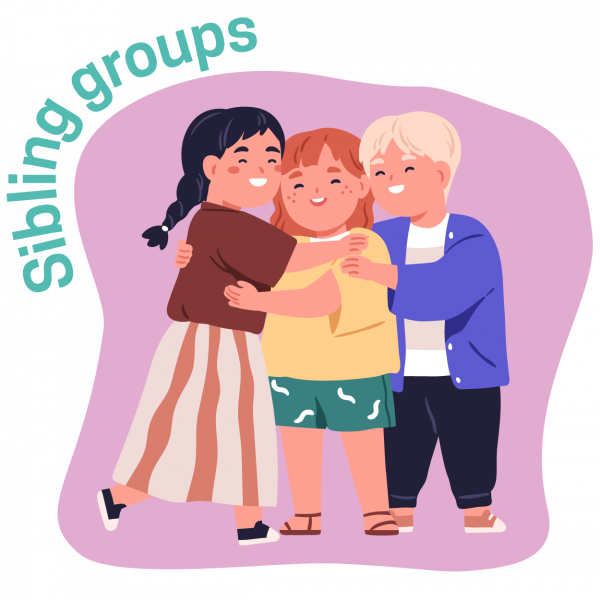
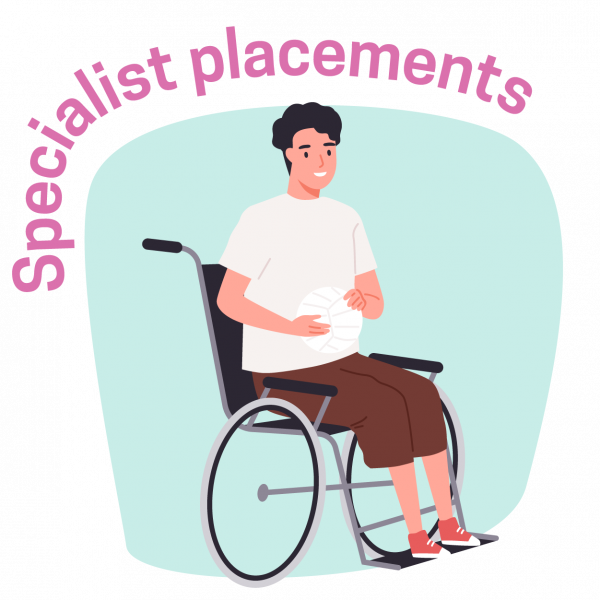
Here's what OFSTED said about us...
"Safeguarding children and young people, underpins all aspects of service delivery and threads through the recruitment, assessment, approval, training and supervision of foster carers. There are no current safeguarding concerns. Children and young people spoken to rated their safety as ‘10 out of 10’."

FAQs!
Still have questions about fostering, or not sure about what certain terms or phrases mean? Check out our FAQ below, or if you're looking for something specific, just get in touch!
Fostering with young parents or parent and child fostering comes in many different shapes and forms. At Unity Foster Care we can adapt to support you, in caring for the many different kinds of young parent fostering you want to consider.
We’ll try and give you a brief summary of the types of Parent and Child fostering that can be required:
- Young Baby with a 14-year-old mother
- Unborn baby and mother
- A baby and a parent who is over 18 years.
- Single father and a baby
- Two parents and a baby
The above is just a brief example of the many kinds of Young Parent Fostering that can take place. The backgrounds to these parents can be equally varied, in that the parent may be single or with a partner, the baby may be born or unborn at time of placement, the parent may still be a child under 18yrs or an adult.
A well as the different types of young people or parents, placed your role as a foster carer can also be very different in each situation. In some instances, the foster carers role is to advise and guide the parents, when it has been identified they may be lacking the skills and abilities to manage without this support.
In other situations, the parent and child may be placed with you as part of a formal court assessment, this would be to help inform the outcomes of care proceedings. You may even be asked to attend court to give evidence, whether what you have to say is in support of the parent or not. The ultimate aim of these processes is to identify, how the best outcomes for the child will be achieved and with whom.
The formal assessments can sound scary to someone new to this role, but the decisions made won’t be based purely on your reports and will be taken into consideration with a lot of other reports. And don’t worry about attending Court, we will be with you every step of the way.
We’ve taken some time to try and explain a little more about fostering a young parent, because ultimately it will be up to you to decide to, what role you undertake and what age ranges you are willing to support.
You don’t have to have parenting experience to care for parent and child foster placements. We have taken many people with no experience of parent and child fostering and have provided training and support to enable them to achieve the assessment level of the role. It really is up to you how far you go.
As with all fostering, you home accommodation will need to be suitable to meet the needs of both the parent and the child (who may or may not share their parents’ room). You will need the basic requirements of a spare room and sufficient space in the living areas for the parent to be observed, guided and supported.
Some of our carers, provide only parent and child placements and no other type of fostering. If you would like to learn more or have a chat about Fostering with young parents. Feel free to give us a call. We’d love to hear from you.
Have you an empty nest? Many people decide that the right time to foster is when their own children have left home and they have empty bedrooms and free time.
Whether or not grandchildren have come along yet, many ‘empty nesters’ find fostering rewarding and a great challenge. Our current ‘empty nesters’ also say they feel like they are giving something back and making a huge difference to young people’s lives. We’d have to agree. As experienced family makers, you will bring a whole host of skills and experiences to the fostering role.
Many of you won’t even have thought about it, such as knowing the way schools work, how to enrol young people into schools, how to advocate for a young person when something isn’t right.
Having raised a family, you’ll know the importance of providing a warm safe and loving home to a vulnerable young person. You’ll have at least the very basic understanding of safeguarding and will understand the need for clear and consistent boundaries.
Fostering is different from raising your own family for example, you won’t have parental responsibility and will be limited in the decisions you can make about the children or young people you look after. However, our role at Unity Foster Care is to support you and guide you through these processes, so you won’t be alone.
We will also provide you with training in the areas you haven’t encountered before and even specialised training to become a specialist foster carer.
We appreciate this is a big step and a decision that needs to be made in a considered way. If you would like an informal chat with us and to ask any questions, feel free to call the free phone number on this page.
At Unity Foster Care we don’t approve our carers to care just for babies. Our aim is always to achieve long-term and stable placements where children and young people can grow and feel part of the family.
Therefore, if you only want to foster babies, we advise you to approach your local authority to become a foster carer with them. It’s not that we don’t want you, however we have very little need for foster carers who only want to care for babies on a short-term basis. As nature has it, babies have a habit of growing older. If a foster carer says they only want to care for babies there will come a time when the baby gets older, sadly meaning they will have to move on. This is totally against Unity Foster Care ethos. We know the more times a young child moves between carers, the more unsettled they will become and the less likely they are to achieve their potential.
So, if you are interested in fostering a baby or toddler, with a view to providing a long-term placement through to 18 years and beyond, where this is in the child’s care plan, we would love to speak with you.
What we do need though, are foster carers who can provide a foster home for Parent and Child placements -– these are foster placements where you help teach a young parent to look after their baby within your home. Unfortunately, we have a great shortage of these types of foster homes, therefore if this interests you, please - Call us to find out more.
Similarly, there is a significant shortage of foster carers who can look after sibling groups, many foster carers don’t have sufficient space in their homes for siblings. Therefore, when a placement can’t be found to keep siblings together, they will frequently be separated and placed with different carers, often long distances apart from one another, meaning they only get to see one another at pre-arranged contact times.
Here at Unity we are passionate in our aim to keep siblings together and will prioritise any applicants who can offer a home for sibling groups of 2, 3 or more. Keeping young children together is vital for their identity, long-term development and ability to form attachments and grow into confident adults.
Regrettable, we still hear stories of adults and teenagers who have been separated from their siblings, growing apart and having lost touch. At Unity Foster Care we work extremely hard to prevent this and will always try our very best to keep siblings together. In certain circumstances, siblings can share a room, but ideally each young person needs to have their own room to provide them with their own space and private time.
You can still foster siblings if you have other children at home as long as you have the required number of bedrooms and sufficient living space to share family times together, such as eating meals or watching TV.
During our matching process, we also discuss all the practical arrangements, such as how school runs will be undertaken and the demands on you time, should either your own or the foster children have specific or extra needs.
Yes, of course you can, however, as with all enquires to become a foster carer, there are many variables which can affect the decisions as to whether this is the right thing for you or the child/young person you may foster.
The key issues we look at are:
- Is the type of fostering you are interested in?
- The age range of the children you want to look after
- Your health and lifestyle
So, for example, even though you may be a fit, healthy, active 60-year-old, if you want to foster babies on a long-term basis you will be 78 years old as they finish school, even older if they continue through college and university. On this basis, it is unlikely that a placing local authority will want to place such young children into your care long-term.
However, if you are a fit and active 65 year old who is interested in short-term fostering, then of course we would be love to hear from you.
If you are concerned about your age and ability to foster, feel free to give us a call and we’d be happy to have a chat with you about whether fostering is right for you.
Of course, you can!
We already have foster parents and employees from the LBGTQ+ community. We appreciate many people from the LBGTQ+ community have experienced discrimination and negativity during their lives. This can provide you with some fantastic insights into the needs of young people and the discrimination and barriers they may face.
We also have young people who may be experiencing gender and sexual identity issues, who may have been rejected by their families and communities with the resulting effect that they blame themselves for being different or ‘not normal’.
We match children from all backgrounds and experiences with the best families regardless of gender or sexuality. However, sometimes being placed in a specific LBGTQ+ family can really help a young person feel settled and ‘normal’, but most importantly give them the chance to form positive attachments, lasting relationships and develop a sense of belonging.
Whether you are from the LBGTQ+ community or not, it is essential that you have a spare room for fostering. A room isn’t spare if you have to move another child from it to create space and nor will we accept a converted living space such as a dining room made into a bedroom.
If you’re part of the LBGTQ+ community and you want to foster, but have any concerns at all, please call us and have a chat. We’d love to hear from you.
Of course, you can foster when you’re single. We have many single foster carers who are doing an absolutely fantastic job of providing warm loving homes to vulnerable children and young people. Whether a foster carer is single or in a relationship has little influence on the happiness and outcomes of the young people we care for.
What is absolutely crucial is that any child or young person we place with you, is carefully matched to ensure that you can meet their needs for example, doing the school runs when you may have birth children of school age. It’s also essential fostering doesn’t disrupt the needs of your own children or significant others.
The fostering assessment helps identify where your skills are, what experiences you can bring to the fostering role and how fostering is likely to impact on your life and those living at home. The assessment will also look at the support networks you have around you.
As much as it’s really important for any family to have a good support network of friends and family around them to provide practical and emotional support, the same is very true for Foster Carers.
Whether you are single or not, it is essential that you have a spare room for fostering. A room isn’t spare if you have to move another child from it to create space and nor will we accept a converted living space such as a dining room made into a bedroom.
If you are unsure as to whether your relationship status may stop you from fostering or not, please call us and we’d be happy to have a chat with you.
As you can imagine there isn’t a straightforward answer to this question, it all depends on what convictions you have, how long ago they occurred and even what age you were when you were convicted.
What we can tell you is that some foster carers who have been through certain criminal proceedings can make excellent foster carers as they present as brilliant role models. Using their own life experiences, they can help guide young people, away from the criminal justice system. Having that experience can mean that a young person will be more likely to listen and take their advice.
Foster care is a regulated activity and is exempt from the Rehabilitation of Offenders Act. We will therefore ask you at a very early stage whether you have any past convictions. We really need you to be honest, with us as it is a legal requirement for Unity Foster Care to undertake an Enhanced Disclosure and Barring Service (DBS) check. This will reveal any past convictions. Frequently, failure to disclose a conviction is a bigger issue than the conviction itself.
As foster carers you will be entrusted with the care of another person’s child. Trust is vital to our ongoing relationship and failure to be honest from the start could easily stop your assessment process.
All that said, many people think that their past convictions will stop them from fostering and they’re often wrong. There are clearly some offences specifically offences against children young people and certain crimes that would stop some people from fostering. Such offences form part of a ‘barred list in law’, but we’re happy to have a chat with you and discuss whether your criminal history would stop you from being a foster carer.
Although, not part of your history, it is essential that you have a spare room for fostering. All our young people require their own rooms, although in certain cases siblings can share.
The simple answer is, YES, you can foster if you have other children living at home. For many foster children joining a home with other children is a great benefit and positive experience for all.
However, we do require fostered children to have their own bedrooms. In some circumstances siblings can share, but on most occasions, you will need to have sufficient bedrooms for your own children and the foster children to have their own rooms.
We don’t count a room as spare, if you have to make your children share to create the spare room, nor is the room spare if it has been created from another part of the living space e.g. a converted dining room.
As well as a spare room we will also need to look at the practical arrangements of caring for your own children as well as the children you may foster. We will consider whether your house has suitable living space for you all to come together to watch TV or eat meals. We’ll also need to be satisfied that young people can get a bit of space and private time.
During matching we also have to look at practical arrangements such as how school runs will be undertaken and the demands on your time, should either your own or your foster child have specific needs.
You may have also have heard many myths and rumours around fostering when you have children. A common myth is that the foster child has to be the youngest in the home. This is nonsense and not an approach taken by Unity.
Young people are matched and placed on needs. Sometimes their needs may be best met through being the youngest, other times the oldest and even the middle child. Matching also takes into consideration any risks faced or presented by a young person in need. If such risks are too great, we won’t place the young person.
So, if you have any questions or concerns about becoming a foster carer whilst you have other children at home, please give us a ring and have a chat. We’d be happy to honestly and openly answer any queries you have.
